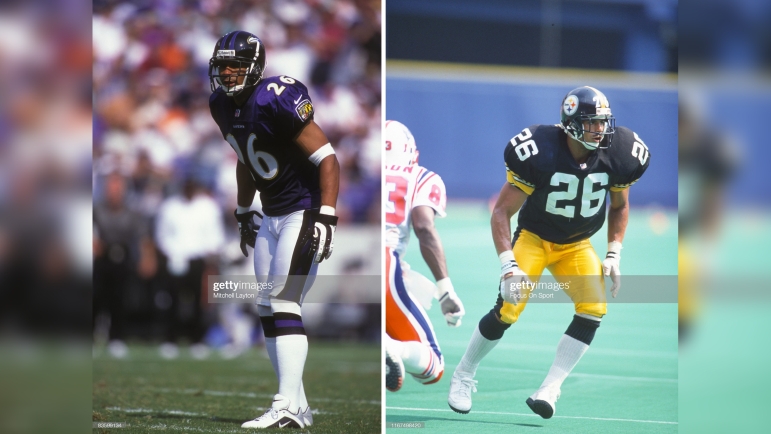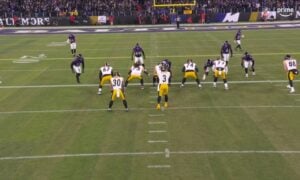While losing out on Hall of Fame quarterbacks like Dan Marino and Johnny Unitas likely take the cake, some of the biggest regrets for the Pittsburgh Steelers in their history are tied to the players they allowed to finish their careers elsewhere. Franco Harris is right up there. So is Rod Woodson, who ended up having a very successful post-Steelers career, particularly with the Baltimore Ravens—but not without a little Steel City assistance.
Woodson spent four seasons in Baltimore from 1998 through 2001 and helped the Ravens win their first Super Bowl in 2000. But as he told former Steelers cornerback Bryant McFadden on the All Things Covered podcast, that defense—run by former Steelers assistant Marvin Lewis—looked a lot like what they were doing in western Pennsylvania.
“We were really running that Pittsburgh defense out of a 4-3”, he told McFadden. “It was some of those same concepts that we used to do in Pittsburgh. We took it there. All the stuff that we did in Pittsburgh as players, I took it there”.
The 10th-overall pick in the 1987 NFL Draft, Woodson is widely regarded as one of the best cornerbacks to ever play the game, although he spent most of his time with the Ravens playing safety—which he considered his natural position.
After a decade in Pittsburgh in which he recorded 38 interceptions, nearly 700 tackles, and six defensive touchdowns, he had a parting of ways in 1997, first playing for the San Francisco 49ers for one season before signing with the Ravens. There he found himself in a leadership position on a largely young defense, bringing his Steelers background with him.
“When we had our own Friday afternoon meetings and no coaches were in the meetings and just the players”, he said, “so we can get a good feel for how we want to play together—I took that to Baltimore. That’s the same thing that we did in Pittsburgh. It was basically ingrained in me in Pittsburgh to do it the right way”.
It ended up working out pretty well. While the first two years in Baltimore weren’t particularly good, the Ravens still finding their way as a fledging franchise, they became world champions in Woodson’s third season there. And Woodson was a key cog in that machine, making the Pro Bowl and All-Pro lists, though his Ravens would lose to the Steelers in the 2001 Divisional Round.
He then moved on to the Oakland Raiders for two seasons before retiring, named a first-ballot Hall of Famer five years later. Though during his Hall of Fame speech he talked about being a nomad player, he has always been close to his Steelers roots, where he spent the majority of his remarkable 17-year career.
The influences of which could be felt in every stop along the way, none more so than during his four-year stint in Baltimore and the role he played in defining that defense that turned into a champion and which has been regarded as one of the league’s best since then.








